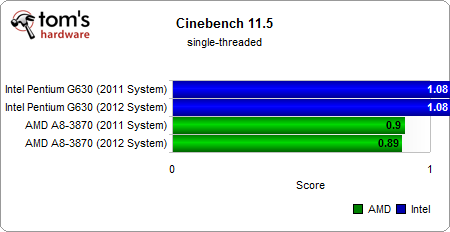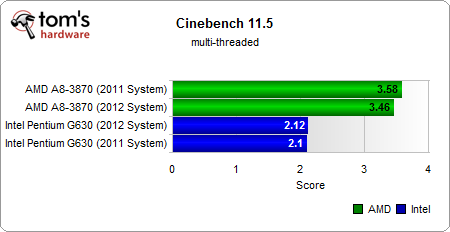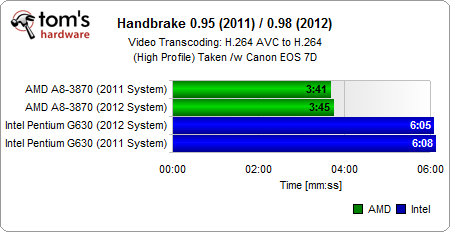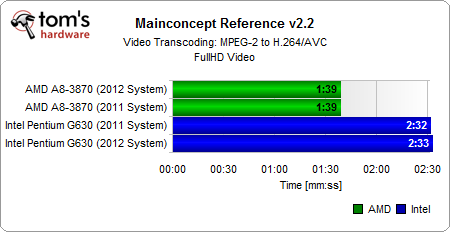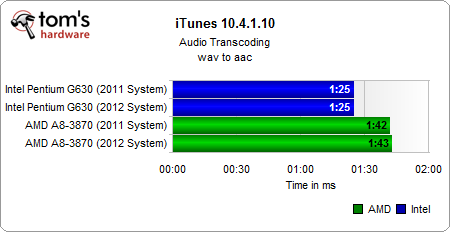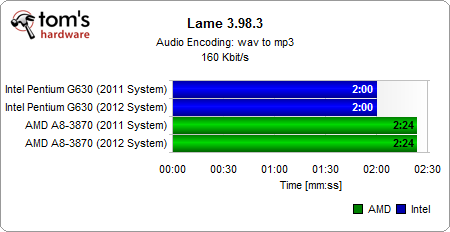Better With Time? The A8-3870 And Pentium G630, One Year Later
AMD's desktop APUs, which combine x86 cores and graphics resources, emerged more than a year ago. We take a Llano-based A8-3870 and compare its performance from 2011 to what you get today using new drivers, application versions, and OpenCL acceleration.
Benchmark Results: Audio And Video
Utilizing a single thread, the Sandy Bridge-based Pentium G630 clearly delivers more performance than the A8 platform at higher clock rates.
However, Cinebench can also be tested using all available cores. The threaded test runs significantly faster on the Llano-based system, its four cores trouncing Intel's two.
This test enjoys a quantifiable benefit from AMD's latest drivers compared to what was available one year ago, demonstrating an aspect that rarely gets explored in any site's reviews. Mainly, the results we generate at launch aren't necessarily static. Particularly when it comes to new graphics architectures, software improvements oftentimes nudge performance forward in a significant way.
We see a similar result at the end of our HandBrake testing, which is also optimized for threading. Our benchmark transcodes H.264 video recorded on a Canon EOS 7D. The quad-core chip wins, regardless of its lower overall IPC throughput.
Our MainConcept workload involves transcoding MPEG-2 into H.264, and the result is similar once again. The A8's four cores dominate the Pentium's two. Unfortunately, we see no speed-up from our more modern installation on either company's hardware.
Converting music to AAC in iTunes is not a threaded task, so the application cannot use more than one core. Naturally, then, Intel takes the win.
The job takes 1:42 on AMD's A8 and 1:25 on the Pentium. Is the difference notable? Sure. But we think it's improbable that mainstream users will make a huge deal about it, just as they might not care that Intel's Pentium takes almost a minute longer to finish the MainConcept test above (the pendulum swings both ways).
Get Tom's Hardware's best news and in-depth reviews, straight to your inbox.
We found similar results using the Lame MP3 encoder.
Current page: Benchmark Results: Audio And Video
Prev Page Components: AMD A8-3870 And Intel Pentium G630 Next Page Benchmark Results: Fritz, 7-Zip, WinRAR, And Adobe Photoshop